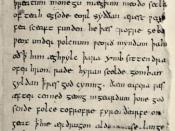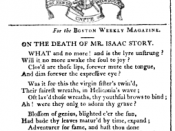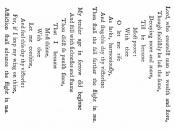To an Athlete Dying Young The poem To an Athlete Dying Young by A. E. Housman is a piece about one of the most tragic fates. That fate, of course, is dying at a young age. The first thing that must be determined is who is telling the poem. I believe it is an older man, one who had been a champion of sorts in his younger days. He seems to know and understand what the athlete had felt and what would have become of him. Lines eleven and twelve are good examples that show that the speaker has had some experience with success. The lines read, "And early though the laurel grows It withers quicker than a rose." To comprehend this, you must first know what a laurel is. In ancient times, it was a type of decorative wreath made for distinguished and honored people. The athlete never actually had one of these, as the word laurel is only used to convey how proud the townspeople were of the young athlete.
Now that we know what a laurel is, we can now understand the full effect of lines eleven and twelve. The speaker is perhaps saying that the glory and praise of being a winner will fade very quickly, as it did with him. Through the speaker's thoughts, you start to get a glimpse of what his life may have been since his youth: his own records broken, his skills diminished, his name forgotten. Instead of being a poem about the death of the athlete, the poem becomes a statement about the life of the speaker. In line eighteen, as one of "the lads who wore their honors out," the speaker seems to be also mourning his own personal demise as a star athlete. Now that we have postulated...


